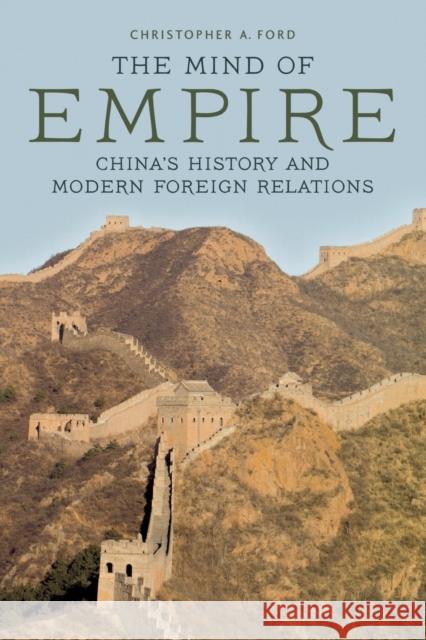The Mind of Empire: China's History and Modern Foreign Relations » książka
The Mind of Empire: China's History and Modern Foreign Relations
ISBN-13: 9780813165431 / Angielski / Miękka / 2015 / 394 str.
With an economy and population that dwarf most industrialized nations, China is emerging as a twenty-first-century global superpower. Even though China is an international leader in modern business and technology, its ancient history exerts a powerful force on its foreign policy. In The Mind of Empire: China's History and Modern Foreign Relations, Christopher A. Ford expertly traces China's self-image and its role in the world order from the age of Confucius to today. Ford argues that despite its exposure to and experience of the modern world, China is still strongly influenced by a hierarchical view of political order and is only comfortable with foreign relationships that reinforce its self-perception of political and moral supremacy. Recounting how this attitude has clashed with the Western notion of separate and coequal state sovereignty, Ford speculates-and offers a warning-about how China's legacy will continue to shape its foreign relations. Ford examines major themes in China's conception of domestic and global political order, sketches key historical precedents, compares Chinese ideas to the tradition of Western international law, and outlines the remarkable continuity of China's Sinocentrism. Artfully weaving historical, philosophical, religious, and cultural analysis into a cohesive study of the Chinese worldview and explaining its relevance, Ford offers a unique perspective of modern China.
With an economy and population that dwarf most industrialized nations, China is emerging as a twenty-first-century global superpower. Even though China is an international leader in modern business and technology, its ancient history exerts a powerful force on its foreign policy. In The Mind of Empire: Chinas History and Modern Foreign Relations, Christopher A. Ford expertly traces Chinas self-image and its role in the world order from the age of Confucius to today. Ford argues that despite its exposure to and experience of the modern world, China is still strongly influenced by a hierarchical view of political order and is only comfortable with foreign relationships that reinforce its self-perception of political and moral supremacy.Recounting how this attitude has clashed with the Western notion of separate and coequal state sovereignty, Ford speculates-and offers a warning-about how Chinas legacy will continue to shape its foreign relations. Ford examines major themes in Chinas conception of domestic and global political order, sketches key historical precedents, compares Chinese ideas to the tradition of Western international law, and outlines the remarkable continuity of Chinas Sinocentrism. Artfully weaving historical, philosophical, religious, and cultural analysis into a cohesive study of the Chinese worldview and explaining its relevance, Ford offers a unique perspective of modern China.











